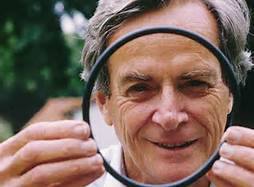Not Enough Facism
LOL Time II
LOL Time
No Government Right

From the late physicist Richard Feynman: “No government has the right to decide on the truth of scientific principles, nor to prescribe in any way the character of the questions investigated. Neither may a government determine the aesthetic value of artistic creations, nor limit the forms of literacy or artistic expression. Nor should it pronounce on the validity of economic, historic, religious, or philosophical doctrines. Instead it has a duty to its citizens to maintain the freedom, to let those citizens contribute to the further adventure and the development of the human race.” In other words, no taxpayer subsidies for art, for the same reasons there should be no subsidies for anything we truly value. If it’s truly valuable, we shouldn’t want politicians anywhere near it–with few exceptions, none of which I can even think of at the moment.
Girls, listen up! Mobile Phone Breast Cancer Link
Dr. Devra Davis is the founder and president of Environmental Health Trust (EHT), which aims to educate individuals and health professionals on environmental health risks and what we can do to reduce and minimize those risks. Currently, EHT is focusing on raising more awareness on the negative health impacts of unsafe cell phone use, and researching cell phone radiation. EHT’s work is extremely relevant as internet use and mobile phones dominate our society today. To learn more about Dr. Davis and her work through the EHT, click here to read more:
http://www.ehtrust.org/
Lack of time in nature is linked to depression and attention deficit disorder
“An emerging body of scientific evidence suggests not spending much time outdoors connected to the natural world can be connected to rising rates of depression, attention deficit disorder, Vitamin D deficiency (an epidemic in the world), and child obesity.” Being in nature is connected to cognitive development, the ability to learn, and the ability to control ourselves,” Richard Louv says.
Exposure to nature is so beneficial.
Humans are hard-wired genetically for an affiliation with the natural world and suffer when they’re deprived of it. (“biophilia” theory)
The brain relaxes in nature, entering a state of contemplative attention that is restorative or refreshing. Attention Restoration Theory (ART)
Louv says there’s enough evidence of the physical and mental health benefits of time in nature that schools should be mandated to include it in the standard curriculum.
Richard Louv is the author of Last Child in the Woods and The Nature Principle, says spending time in nature has a wide range of benefits for physical and mental health.
By Pauline Dakin, extract from CBC News
Toms’s footnote: If you can’t afford three or four hours to take a bushwalk, just take a walk. Taking a walk has been found to be the closest thing to a “cure all”. While you are walking, make sure to put your attention on your surroundings. Look at whatever is around you. If you can, do it in a park or by the sea.
Dogs Are Welcome In This Hotel
MMR Vaccination Autism Link
Brain Damaged Swine Flu Victims to Get 60 Million Pounds Compensation
Brain-Damaged UK Victims of Swine Flu Vaccine to Get £60 Million Compensation. The Liberty Beacon UK.
http://www.goforwardtogether.com/2014/03/07/brain-damaged-uk-victims-of-swine-flu-vaccine-to-get-60-million-compensation






